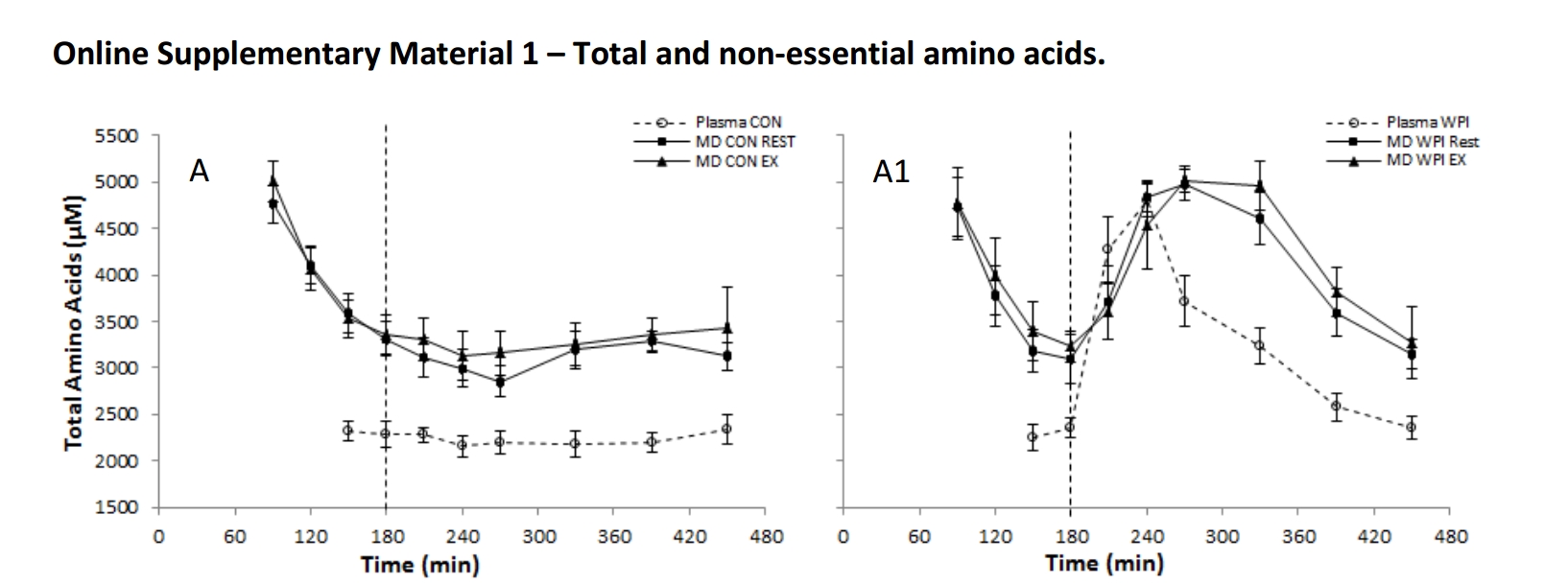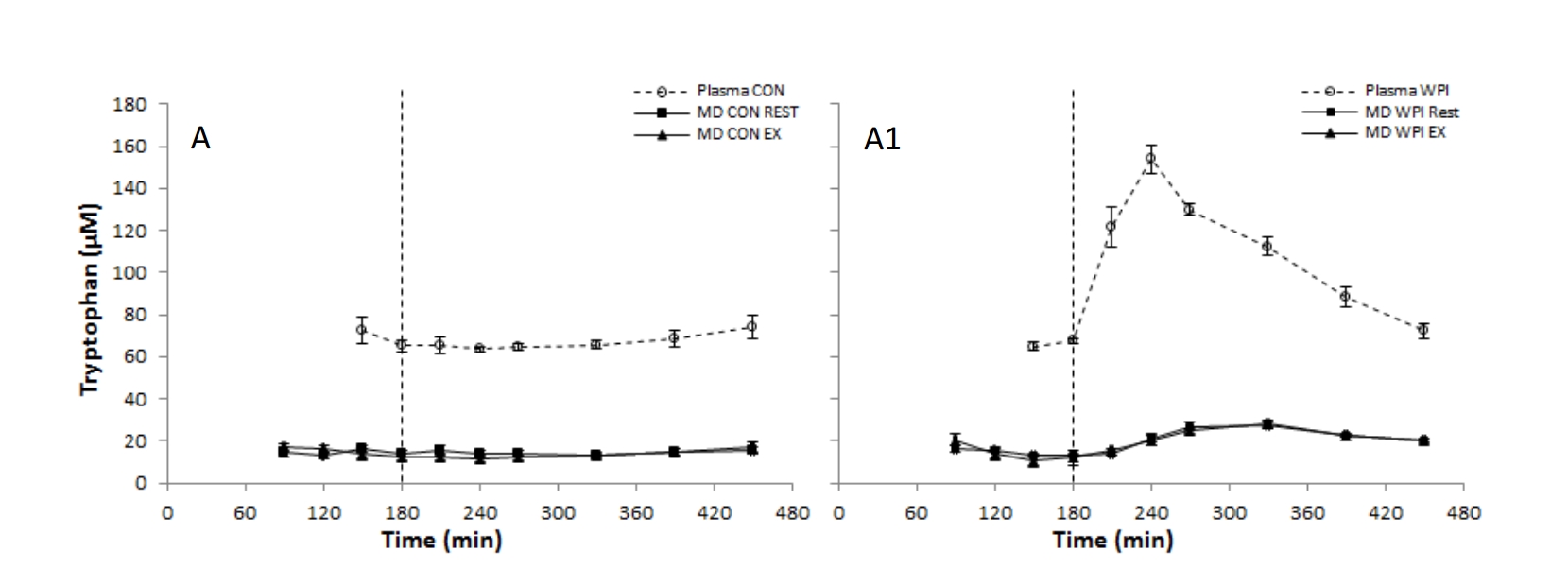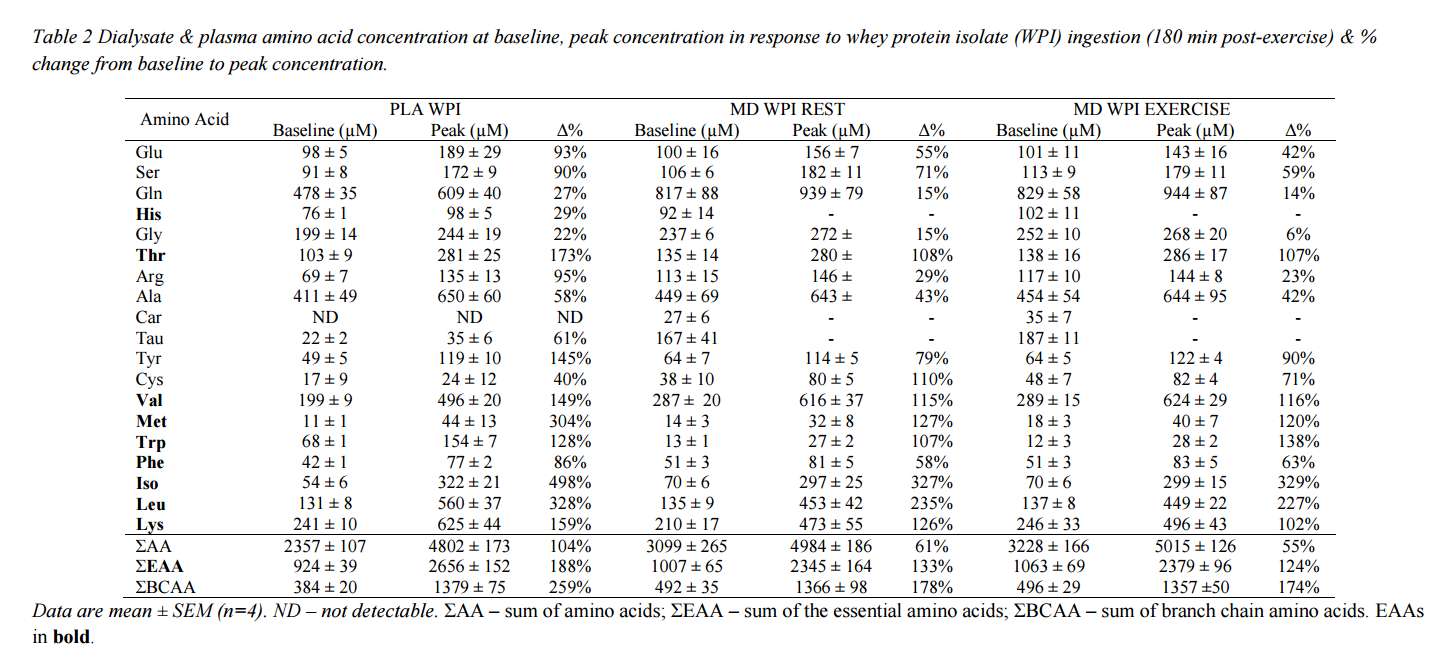Les acides aminés de la whey restent plus longtemps dans les muscles que dans le sang
Dynamic measures of skeletal muscle dialysate and plasma amino acid concentration in response to exercise and nutrient ingestion in healthy adult males
Amino Acids January 2017, Volume 49, Issue 1, pp 151–159 William G. McCormack
Nutrient stimulation of muscle protein synthesis (MPS) is regulated by the change in extracellular essential amino acid (EAA) concentration. In vivo microdialysis (MD) is a minimally invasive sampling technique, capable of sampling solute in the interstitial space of a target tissue. In a contralateral limb design (REST vs. EX), this study utilised in vivo MD to examine the change in skeletal muscle dialysate amino acid concentration following ingestion of whey protein isolate (WPI) and flavoured water (idiot).
Four male subjects undertook unilateral, concentric lower limb knee extensor resistance exercise (RE) on two occasions. After RE, an MD catheter (CMA 63) was inserted into m. vastus lateralis of the exercise and resting leg and sampled serially over 7 h. Following a 2.5 h equilibration period subjects consumed either 0.55 g/kg WPI or idiot.
Peak plasma EAA (2656 ± 152 µM) preceded the peak in dialysate EAA (2345 ± 164 µM) by 30 min in response to WPI ingestion; however, the post-prandial elevation in dialysate EAA extended beyond that of the plasma. This resulted in no difference in the dialysate EAA area under the curve (ΔAUC270) relative to plasma in response to WPI ingestion [220 ± 29 vs. 206 ± 7.9 mmol min/L (p = 0.700)]. A bout of unilateral lower limb RE had no effect of the subsequent dialysate amino acid concentration in response to either WPI or idiot ingestion.
These data represent a novel report describing the time course and magnitude of change in skeletal muscle dialysate concentration of key nutrient regulators of MPS sampled by in vivo MD, in response to nutrient ingestion with and without RE.
















